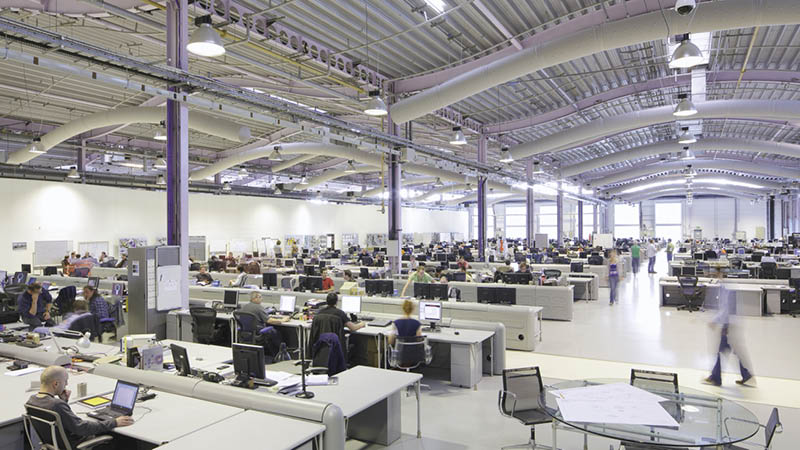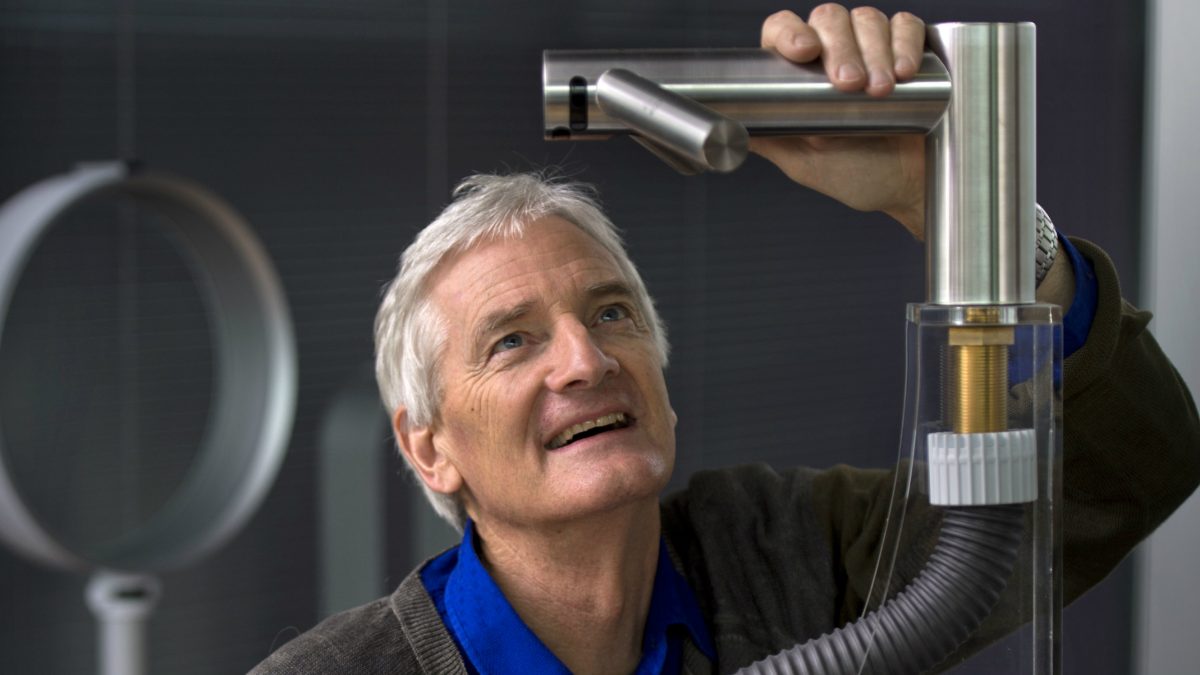- Contact us:
- 03300 535 600
- [email protected]
Construction Injection: £3 billion ‘Home Building Fund’
February 8, 2017
Words and phrases you shouldn’t use when negotiating your salary
March 3, 2017Sir James Dyson, one of the UK’s leading entrepreneurs, has bemoaned the shortage of engineers in Britain, saying he has enough work for another 2,000 recruits if only he could find the staff.
With the intention of recruiting in the region of 650 Engineers this year alone, Sir James Dyson has considerable aspirations for his company. With operations in the UK and in Asia, already employing 2,000 people, Sir James is in a unique position to comment on the engineering workforce available for work in the UK.

Dysons vast R&D workspace at their Malmesbury, Wiltshire HQ
Sir James said: “We’ll get all the workers we need in Singapore and Malaysia, but we have to be realistic in Britain. If we can get 300 we’ll be doing well. We would recruit 2,000 if we could. We have got the technology and the ideas. We just need the people.”
Sir James is of the opinion that the British Government is failing to understand how quickly the export market was changing and the importance of putting a premium on talented engineers developing new products and launching them fast.
“If you export, you can only export better technology and better engineering,” said Sir James. “So you have to develop products much more rapidly than you have historically. Britain is not geared up for that and I don’t think the Government understands it.”
He said Britain “produced 12,000 engineering graduates a year – and there are currently 54,000 vacancies. It’s predicted that in two years time there will be 200,000 vacancies. India produces 1.2m engineering graduates a year. The Philippines produces more than us, so does Iran, so does Mexico. It’s not a sustainable situation.”
Sir James said Government initiatives, such as the new Patent Box legislation that gives tax breaks for companies developing patents in the UK, was “a good thing. We have very bright engineers and a good business environment. The problem is not enough people want to do engineering.”
Calling for educational reform, he said: “I’d like to see design technology recognised as a science A-level alongside maths, physics and chemistry because it is the practical application.”
Post-graduate engineering studies also needed a re-think, he said. “More than 80pc of post-graduate science and engineering students at British universities are from outside the European Union and the percentage is growing,” Sir James said.
“Out of 3,000 engineering post-grads, only 50 are British. The tragedy is that they go back home and take back the technology they have developed in British universities and become our competitors.”
Sir James added that it was absurd that British post-grad engineering students were expected to live on grants of “£7,000 to £12,000 a year. They should be paid £40,000 a year in recognition of the contribution they will make,” he said.




